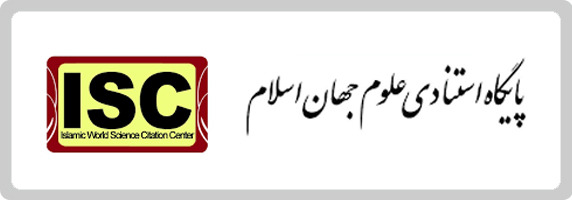Identification and Validation of Skill Factors in Religious and Worship Education in the Virtual Learning Environment for Primary School
Keywords:
Religious education, virtual education, communication skills, critical thinking skills, problem-solving skills, cognitive skills, digital, religious educationAbstract
The objective of this article is to identify and validate the skill factors in religious and worship education in the context of virtual learning for primary school students. This study is qualitative and conducted through document analysis. Data were collected from scientific articles and sources available in reputable databases, and the identified skill components in religious education were validated using qualitative content analysis and expert evaluations. The results of the study indicate that four primary skills are critical in religious and worship education within the virtual learning context for primary school students: communication skills, critical thinking skills, problem-solving skills, and cognitive skills. These skills directly contribute to improving the teaching and learning process in religious education in virtual spaces. Notably, communication skills and the ability to critique religious teachings play a vital role in creating an interactive environment and enhancing the understanding of religious concepts among students. This study emphasizes the need to enhance the digital skills of teachers and design educational content suited for the digital space in order to improve the quality of religious education in virtual learning. Additionally, creating interactive spaces for students and focusing on critical thinking and analysis skills significantly helps in enhancing the understanding and application of religious teachings.
Downloads
References
Fajarwati, L. A. (2023). Parents' Perception of the Use of Digital Technology in Learning Islamic Religious Education. Journal of Islamic Studies, 1(2), 81-89. https://doi.org/10.61677/al-masail.v1i2.230
Hidayati, H., & Sugiharto, W. H. (2024). The Role of Digital Literacy in Increasing Understanding of the Qur'an Among People Islamic Students. Jurnal Info Sains Informatika Dan Sains, 14(02), 29-42. https://doi.org/10.54209/infosains.v14i02.4294
Hyangsewu, P., Abdullah, H., Faqihuddin, A., & Muflih, A. (2024). IRE Teachers' Efforts to Improve Digital Literacy to Strengthen Religious Interaction Towards a Good Digital Citizenship Society. Ijeca (International Journal of Education and Curriculum Application), 7(3), 359. https://doi.org/10.31764/ijeca.v7i3.26737
Pratiwi, A. Y., & Ihwan, M. B. (2025). Syawir Education Response to the Digital Era: Challenges and Opportunities to Use Maktabah Syamilah. Ijgie (International Journal of Graduate of Islamic Education), 6(1), 202-209. https://doi.org/10.37567/ijgie.v6i1.3750
Shofiyah, L. N. (2024). The Role of Digital Literacy in Teaching the Islamic Education. Iseth, 2849-2851. https://doi.org/10.23917/iseth.5439
Shyshak, A. (2024). Pedagogical Requirements for the Development of Information and Digital Skills of Junior Schoolchildren in the Process of Primary Education Digitalization. Visnyk of the Lviv University Series Pedagogics(40), 24-38. https://doi.org/10.30970/vpe.2024.40.12232
Sukri, U. (2025). Facing the Challenges of Online Learning: Pedagogic Competence of Lecturers in Religious Colleges. Jitir, 2(3), 140-151. https://doi.org/10.59613/74cdrz93
Suryanti, E. W., & Ikawati, A. (2025). Fostering Religious Character Education Through the Implementation of Digital Literacy Culture. Al-Ishlah Jurnal Pendidikan, 17(1), 500-511. https://doi.org/10.35445/alishlah.v17i1.6377
Syafi'i, S. i., & Shokheh, M. (2025). The Role of Modernizing Islamic Religious Education and Character Building in Facing the Challenges of Juvenile Delinquency in the Digital Era. Al-Ulum Jurnal Pemikiran Dan Penelitian Ke Islaman, 12(1), 73-83. https://doi.org/10.31102/alulum.12.1.2025.73-83
Downloads
Published
Submitted
Revised
Accepted
Issue
Section
License
Copyright (c) 2025 هاله اصفهانی (نویسنده); زهره سعادتمند (نویسنده مسئول); مریم براتعلی (نویسنده)

This work is licensed under a Creative Commons Attribution-NonCommercial 4.0 International License.






